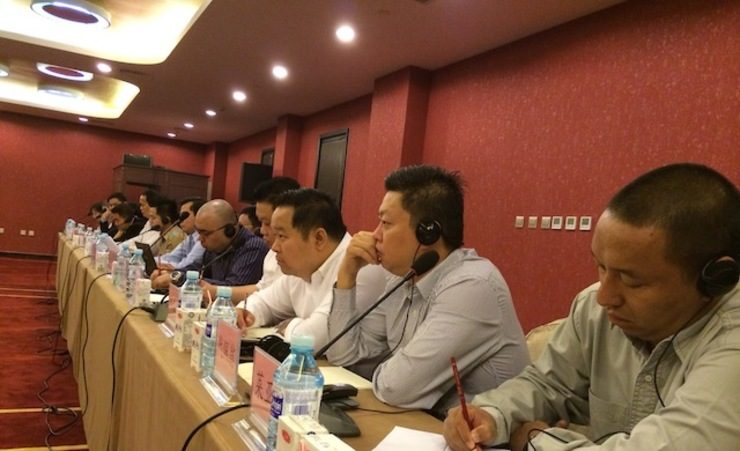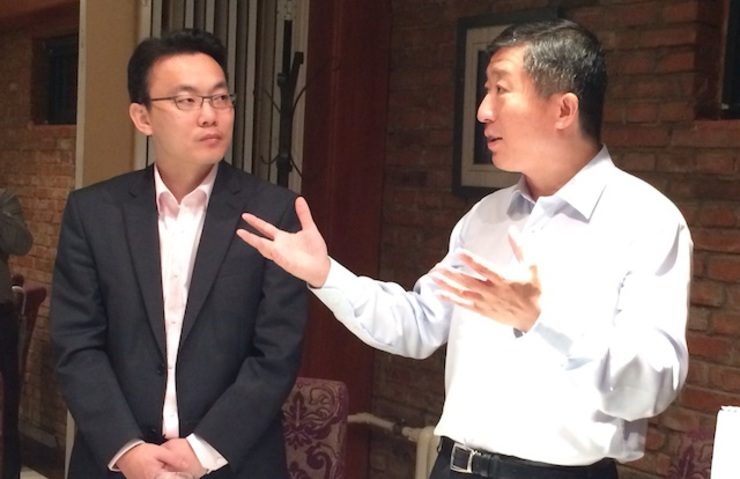SUMMARY
This is AI generated summarization, which may have errors. For context, always refer to the full article.

BEIJING, China – Perceived as a regional bully by smaller countries with whom it has maritime or territorial disputes, China is engaging in what it calls “E-public diplomacy.”
It is building relations with media from member-countries of the Association of Southeast Asian Nations (ASEAN), inviting online journalists for the very first time to its “China-ASEAN Workshop on News Website Development and Cooperation.”
In the past, China invited only traditional media for its programs, according to Zhu Xiaozhong, deputy director of the E-Public diplomacy division of the Chinese foreign ministry’s information department.
About 20 journalists and media executives and two officers of the ASEAN Secretariat have been invited to participate in the media program in China from August 30 to September 6.
On Monday, September 1, they met with Chinese journalists and academics for a discussion on challenges in operating a news website and cooperation between China and ASEAN countries in the field of “E-public diplomacy.”
Balancing interests
Pan Jian, deputy chief editor of People.cn, the first Chinese news website to go public on the Shanghai Stock Exchange, said that while they still need to do a lot to “bridge the gap with the people,” they also have to think about returns to their investors by “developing new forms of media” and “setting up media groups that enjoy considerable influence.”
The day after People.cn enlisted in the stock exchange, its stock price rose to 106%, about twice the stock price of the New York Times, Pan said.
On the part of Sina.com, China’s largest microblogging site, chief editor Chen Tong said their platform has generated a lot of interest in international issues and facilitated dialogue among users.
For instance, overseas users showed tremendous interest in Thailand after the recent military coup, while Malaysia attracted attention as a result of the succession of air disasters that befell Malaysia Airlines, including the mysterious disappearance of a Kuala Lumpur-Beijing flight.
‘Tweetaganda’
Liu Chang, dean of the School of Journalism and Communication of the Communication University of China, pushed for “constructive and peaceful journalism.”

For instance, he said he observed “too much negative reporting” on the South China Sea issue. Constructive journalism, according to him, would require “providing solutions and raising awareness about peace.” Just like interpreters, journalists can cause a “fallout in dialogue” if their interpretation of events is incorrect, he said.
But given diverse political systems and varying degrees of press freedom in ASEAN, some journalists said it’s not as easy as it sounds.
Romeo Arca of the ASEAN secretariat also pointed out that even for them, there is a need to strike a balance between being positive and being credible.
Purely positive stories on Twitter generate accusations of “Tweetaganda” or propaganda on Twitter, Arca said.
New media’s influence
Xinhua’s Liu Jiawen said they publish over 1,500 news stories about ASEAN countries a day and are looking to build more country-specific channels for ASEAN countries.
As China’s national official news agency, Xinhua has “considerable resources” to set up branches in at least 170 countries.
It is recognized even by foreign leaders as an important website and platform when they visit China, Liu said.
When US President Barack Obama went to Shanghai, the US embassy chose Xinhua for its live broadcast. This is one indication of the growing influence of new media, Liu added.
Yet admittedly many Chinese do not know ASEAN well enough, the Chinese journalists said.
And because there is relatively less control by the state over Chinese media, some of which have started to be market-driven, there is increased pressure on government to “immediately release right information to the public,” said Tian Qi, deputy director general of the Ministry of Foreign Affairs’ information department.
Whereas before the ministry observed what it called the “golden 4 hours” within which corrections should be made in the media, with new media, Tian said, the hours have been reduced to minutes.
They go by the saying that “the most stupid thing to do is to delete an article on a website.” Tian added that it is the role of the foreign ministry to “make friends with the media” because their platform can be used to make the Chinese people understand Chinese foreign policy. – Rappler.com
Add a comment
How does this make you feel?
There are no comments yet. Add your comment to start the conversation.